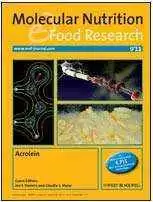Celiac.com 10/26/2011 - In vitro and in clinical studies have shown that oxidative stress plays a role in gluten-induced toxicity, but no studies have observed this activity in living tissue.
 A research team set out to examine the role of nuclear factor erythroid 2-related factor2 in gliadin-mediated toxicity in human Caco-2 intestinal cells and in gliadin-sensitive human leukocyte antigen-DQ8 transgenic mice (DQ8), along with assessing the protective activity of CLA.
A research team set out to examine the role of nuclear factor erythroid 2-related factor2 in gliadin-mediated toxicity in human Caco-2 intestinal cells and in gliadin-sensitive human leukocyte antigen-DQ8 transgenic mice (DQ8), along with assessing the protective activity of CLA.
Celiac.com Sponsor (A12):
The research team included Paolo Bergamo, Marta Gogliettino, Gianna Palmieri, Ennio Cocca, Francesco Maurano, Rosita Stefanile, Marco Balestrieri, Giuseppe Mazzarella, Chella David, and Mauro Rossi.
The team had previously observed the protective role played by conjugated linoleic acid (CLA), which works by the activation of nuclear factor erythroid 2-related factor2 (Nrf2), which serves as a crucial transcription factor for the synthesis of antioxidant and detoxifying enzymes (phase 2).
To assess gliadin effects in differentiated Caco-2 cells and in DQ8 mice, they fed the mice a gliadin-containing diet with or without CLA supplementation, and then combined enzymatic, immunochemical, immunohistochemical, and quantitative real-time PCR (qRT-PCR) data.
In both laboratory tests, and in living tissue tests, they found gliadin toxicity accompanied by downregulation of phase 2 and elevated proteasome-acylpeptide hydrolase activity.
Interestingly, in DQ8 mice intestine, gliadin did not generate severe oxidative stress extent or pathological reactions like those found in celiac patients. Moreover, the reactions that did result were mitigated by CLA.
From these results, the researchers conclude that CLA offers beneficial effects against the reduction of key intestinal cytoprotective defenses. This indicates a new nutritional approach for the treatment of intestinal disease associated with altered redox homeostasis.
Source:
-
Open Original Shared Link





Recommended Comments